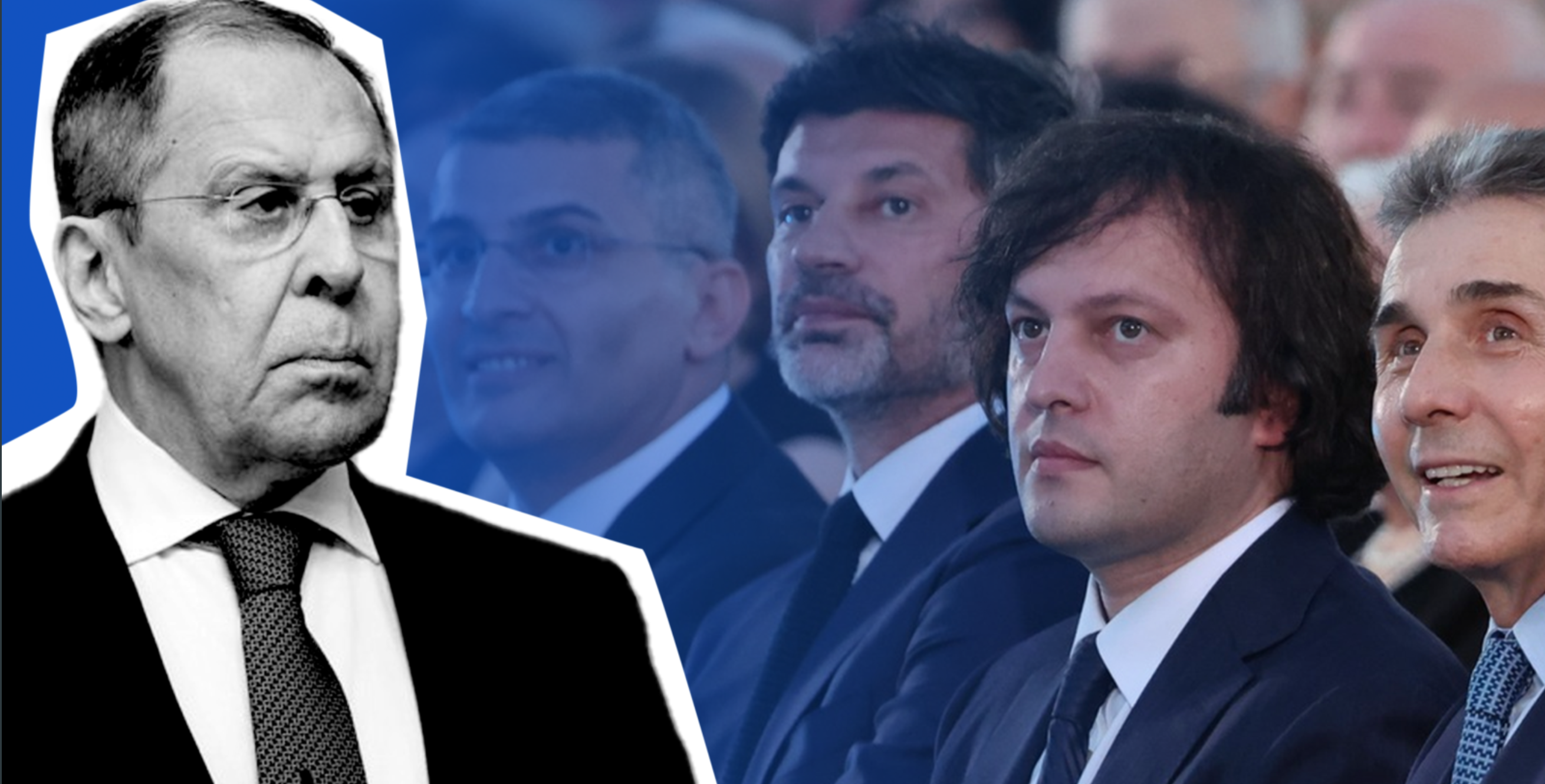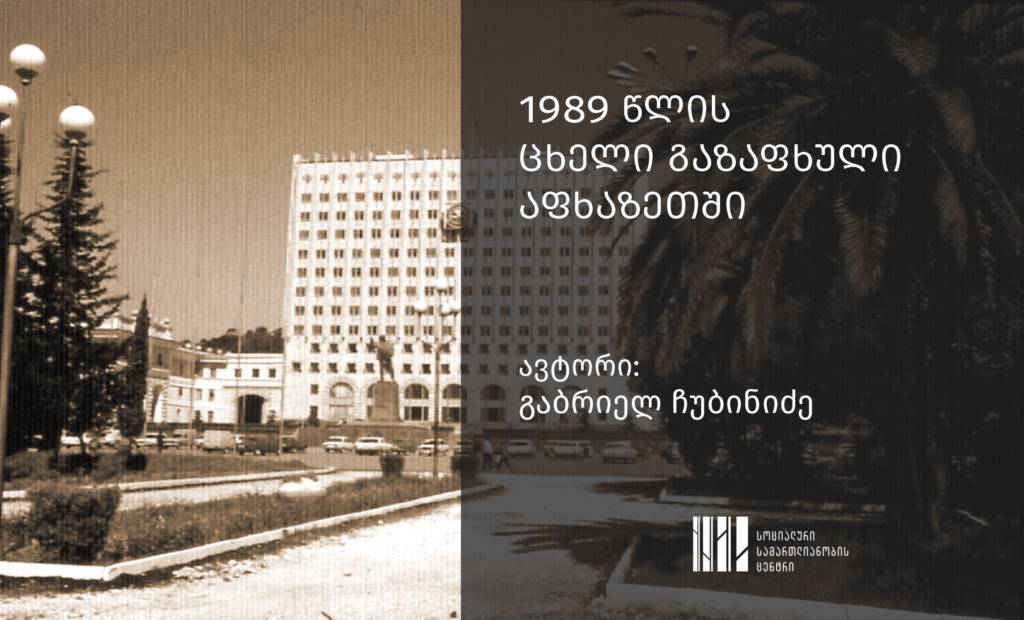Interview with Levan Mikaa
The article was originally published on the Echo of the Caucasus website. The text and terminology of the article are reproduced without changes. All rights belong to Ekho Kavkaza. Publication date: July 04, 2024.
Georgia is not prepared to recognize Abkhazia and South Ossetia, and while it develops economic ties with Russia, it will not restore diplomatic relations, Abkhaz politician Levan Mikaa told journalist Elena Zavodskaya in an interview with “Apsny Khabar”.
Levan, Chinese investors are building a port in Anaklia, which is practically on the border between Georgia and Abkhazia. Recently there has been information that Georgia is showing some initiative toward establishing diplomatic relations with Russia. How would you characterize this situation?
These are two pieces of information not directly related to each other, so let’s analyze them separately. Regarding the resumption of diplomatic relations between Georgia and Russia, there are no official statements from Georgia. There are only rumors and discussions that they are preparing for it. I believe that resumption will not happen in the near future because Georgia has enacted its “Law on Occupied Territories,” and there are currently no indications of this law being repealed.
Repealing this law and restoring diplomatic relations essentially means recognizing Abkhazia and South Ossetia, which, in my opinion, Georgia is not ready for today. Georgian society lives with myths and desires regarding the restoration of territorial integrity and so on. They need to realistically assess today’s geopolitical situation, which has already been established in the South Caucasus region, but we do not see these trends. Therefore I do not foresee any diplomatic relations between Georgia and Russia in the near future.
However, this does not mean that economic relations will not develop. Georgia has become a hub for sanctioned Russian goods. The volume of trade is very large. Tourism in Georgia is growing due to Russian tourists, and the IT sector has been significantly boosted by Russian relocations. So economic relations will develop, but I believe diplomatic and political relations are not expected in the near future.
As for the construction of the port in Anaklia, I think this is a completely different matter altogether. As is known, there is significant trade between Europe and China. Most of this trade goes through Russia via railway. However, there is now an alternative route: China-Kazakhstan, then by Caspian Sea barges to Baku.
Several railway branches are being considered through Turkey, the so-called Zangezur Corridor. One branch being considered is from Baku to Georgia, Tbilisi, and the port of Anaklia. From there, Chinese goods will be exported to Europe by ships. This is a route that bypasses Russia.
Thus, on one hand, Georgia is developing economic relations [with Russia], and on the other, Georgia is laying a transport artery through its territory, bypassing Russia, which is consequently disadvantageous to Russia because it is bypassed. This is the geopolitical reality.
Georgia has defined its place in this geopolitical field. It will build equidistant relations with Russia — economic, but not diplomatic. They are planning strategic alliances with China, and so Georgia wants to play the role of a hub not only towards Russia but towards the entire South Caucasus and China.
Georgia is pursuing a policy solely in its own interests, not in the interests of Russia. It is beneficial for them to trade with Russia today, so they do. Tomorrow, trade with China will increase, and they will strengthen trade with China.
Do you not think that Georgia is turning towards Russia and away from the West?
Here I would say: it is not Georgia leaving, but the West leaving the South Caucasus. Western influence is diminishing in the South Caucasus. This was evident in the Karabakh war and in the general situation around the Caucasus. A lot, by the way, depends on the elections in the United States. After all, Trump is a supporter of America’s isolationist policy, non-interference in other affairs. That is, he is more concerned with the situation in America itself.
So regional powers like China and Russia, Turkey and Iran, where their zone of interests lies, the zone of US interests will diminish. Neither in military-strategic terms nor in any other way can the West today really help Georgia with anything or intervene in any conflict situations that may arise in Georgia. So, in this way, I think Georgia is maneuvering. In cultural terms, Georgia wants to define itself as part of the West, but in terms of geopolitics, it will play the role of a mediator between different influential forces, primarily Russia, China, Turkey, and Iran.
Do you believe there is no prospect that at some stage Russia, to establish diplomatic relations with Georgia, might either withdraw recognition of Abkhazia or encourage Abkhazia to join Georgia for a more promising goal — to establish closer relations with Georgia?
Today the geopolitical reality is such that Abkhazia as an independent state, which has already established its place in our region, is fait accompli. Because 30 years is also a certain period of existence for an independent state, which has survived both blockade and many difficulties in recent history. I think this is excluded. Everyone understands that a new generation has grown up in a free country. The people are already educated in the spirit of independence. Therefore politically speaking, I think this is impossible.
What dangers and difficulties do I see? Abkhazia is entering a new world where international capital, oligarchic capital, are becoming interested in Abkhazia. The main question here is retaining control of resources under the Abkhazian state. Lately I am very nervous because I hear all the time that land plots are being sold here and there, there is a frenzy about selling off the homeland.
This concerns me greatly. If the coastal strip, the most promising for future Abkhazia, is divided and sold… We don’t even know who stands behind which commercial project. It’s so opaque: some offshore entities, behind the offshores more offshores, and you won’t find the ultimate beneficiary. Unfortunately, our authorities demonstrate and promote this sale of Abkhazia in every way. Here, I think, is the biggest danger for us because if we look back twenty years ago, there was no such interest in Abkhazia. Now investors want to buy everything and anything to use it for their own purposes in the future.
In the situation that is developing here, considering the port of Anaklia, Georgia’s relations with China, and Russia’s role, how should Abkhazia behave, how should the leadership of Abkhazia act, what place can Abkhazia occupy?
We have already historically taken this place. We defended our homeland with arms, and we paid a very high price for it. Revising this position is now impossible. I think the most important thing here is to strengthen our achievements, our sovereignty.
Even if we take the example of Russia. Vladimir Vladimirovich Putin, how does he protect his national interests economically and politically? Isn’t this an example?
For example, there are many temptations to shift responsibility to some investors. Now it is popular for us to say, let’s invite investors and they will protect us, feed and water us. I want to warn everyone that free cheese is found only in a mousetrap. We must not give up on fundamental things like independence and freedom for attractive goals; we could lose everything.
We must strive to strengthen the state, its sovereignty, democratic freedoms, where there is understanding between the people and the leadership, where there are common goals. Unfortunately, I do not see this now. I see complete discord. Private-property interests prevail, taking precedence over state interests. All this cannot but worry us. And the first duty is to develop the economy, small and medium-sized businesses, and domestic investors. Everything else, I think, is secondary.
How can Abkhazia be integrated into this foreign policy framework? It is clear that the economy must develop, but under the conditions and frameworks that exist around us today, Abkhazia cannot develop on its own, apart from the foreign policy situation?
I would not directly tie transit matters to development. Because transit for us can develop through ports and to the North Caucasus. This is a transit corridor that has existed since ancient times, but unfortunately, it is not open today; there is no road, no infrastructure.
As for transit towards Georgia, this is purely a political issue. If transit goes through Abkhazia’s territory through Georgia and so on, this is indirectly recognizing Abkhazia. Georgia today is not ready to recognize Abkhazia. Therefore, I think this direction will not develop today due to these political reasons.
As for development, globalization is progressing through other means today. It goes through information, through the internet, through education. We need to invest in and develop in this direction. We need to develop the IT sector in Abkhazia. Here, I think, there are no obstacles to development.
There are also two directions that I have considered. The first is to integrate into this space by abandoning our own roots, assimilating. And the second is not to give up our roots, but to develop in these areas based on our traditional culture. I am in favor of developing based on our own culture, moral values, our own vision. Asian countries have taken this path. China, Japan, South Korea, they are developing precisely based on their own values. They have succeeded in this, and we should use these examples and move in this direction.

